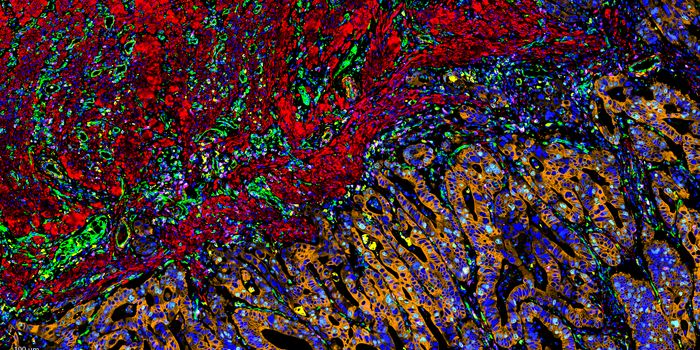How does inflammatory bowel disease increase heart attack risk?
Having inflammatory bowel disease (IBD) may need to be considered a risk factor for heart disease independent of classic risk factors like high blood pressure, high cholesterol, and regular smoking habits. In a new study, researchers found that people with IBD are more likely to have a heart attack.
IBD includes two conditions, Crohn’s disease and ulcerative colitis. Crohn’s disease affects any part of the GI tract, but ulcerative colitis tends to affect the large intestine and the rectum only. Inflamed tissue appears in patches for Crohn’s disease patients, while ulcerative colitis patients exhibit continuous inflammation. Lastly, inflammation in Crohn’s disease patients impacts multiple layers of tissue in the GI tract, while inflammation in ulcerative colitis patients only reaches the innermost layer of colon tissue.
In a study evaluating medical record data from 17.5 million patients from a large database, including patients between 18 and 65 diagnosed with IBD, researchers looked at who had heart attacks and who didn’t, on average. Younger patients and females with IBD had an especially high risk of heart disease, compared to males and older people with IBD as well as people without IBD. Additionally, people with IBD were more likely to have diabetes, high blood pressure, and high cholesterol.
Younger people and females are also more likely to have more severe forms of IBD, which researchers believe is connected to their increased risk of heart attacks compared to males and older people with heart disease.
"Our findings suggest that IBD should be considered an independent risk factor for heart disease,” explained lead author Muhammad S. Panhwar, MD. His study is one of the largest to ever investigate the connection between IBD and heart disease risk. However, past studies have linked heart disease to other inflammatory conditions, lupus and rheumatoid arthritis.
Going forward with a more concrete understanding of the connection between the two conditions, researchers and medical professionals like Panhwar are hoping to focus on prevention strategies. This includes encouraging doctors to monitor closely their patients with IBD for heart disease.
IBD affects 3 million Americans, the CDC estimates. The disease is usually diagnosed when a person is between 15 and 30 years old.
Sources: Centers for Disease Control and Prevention, American College of Cardiology









